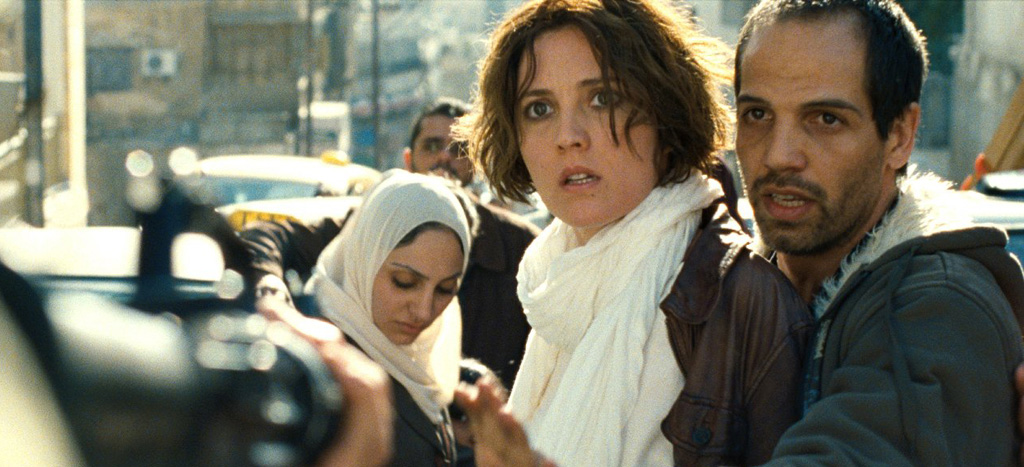There’s an extraordinary tracking shot during the climax of “Inch’Allah” that’s worth the price of admission, a scene that shouldn’t be spoiled here but involves a woman running towards the camera that has all the urgency and technical efficiency to make it truly breathtaking. It’s so good, in fact, that it makes the rest of Anais Barbeau-Lavalette’s sophomore narrative feature film feel slightly less so in comparison, a drama aboutChloe, a Canadian obstetrician (Evelene Brochu) whose loyalties lie with neither the Israelis nor Palestinians as she crosses the border on a daily basis to her clinic in the West Bank, but to her patients, particularly a young pregnant woman named Rand (Sabrina Ouazani) whose family takes Chloe in.
Generally well-made if a little overly schematic, “Inch’Allah” doesn’t stray far from the traditional narrative about the Israeli-Palestinian conflict, going so far as to announce in its opening frames its ending as a suicide bomber of unknown origin enters a town square to blow it up before recoiling to the beginning where a carefree Chloe and her friend Ava (Sivan Levy) are carousing in the streets. Ava wonders aloud while filming herself, “How do you say hello to Palestine?” a question she has no answer for herself, being psychologically tortured by her job in border patrol.
Chloe experiences such heartache on a daily basis through her work as well, but as a foreigner, does so with clear eyes – a point that Barbeau-Lavalette thrusts home quite literally with numerous closeups of Brochu, who thanklessly acts as a cipher for the chaos around her. On one side, she witnesses the poverty of Rand’s Palestinian family who live off scraps in a settlement while on the other, she sees Ava’s frustrations which segue from emotional distress to almost bored resignation when it comes to the conflict. Her separation from her mother, who communicates over Skype, also adds an interesting technological angle to the film in terms of Chloe seeing what it can accomplish in her living room and what it cannot outside her apartment in terms of connection. The trouble is Rand and Ava become the most interesting characters in “Inch’Allah” but with Chloe as the lead, they feel underutilized, particularly as their significance level rises as the film wears on.
Yet Ouzani and Levy make the most of their time onscreen and once “Inch’Allah” reaches that aforementioned climax, it’s enough to forgive some of the means of getting there, resulting in a conclusion that may be manipulative but effective. The way Barbeau-Lavalette bookends the film leaves more questions than answers, both intentionally and not, arriving at the inevitable question of when the violence will end but not interested necessarily in what drives the perpetual perpetration of it. Handsomely shot by Phillippe Lavalette and an elegant classical score from Levon Minassian, “Inch’Allah” is also far from the gritty approach to the region that has been in vogue, which lends itself well to the film’s considerate approach to its characters. Ironically, a little dirt may have made “Inch’Allah” something more involving. Then again, its remove as a Canadian production is one of the things that makes it interesting.
“Inch’Allah” is now open in New York and opens in Los Angeles at Laemmle Music Hall and West Park Theater in Orange County on August 23rd.




